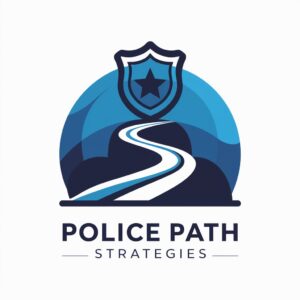Blogs & Resources
Typical Requirements and Qualifications for Becoming a Police Officer
Pursuing a career in law enforcement requires meeting various educational, physical, and personal qualifications. Understanding these requirements is essential for aspiring police officers, especially in specific regions like Ontario, Canada. In this blog post, we will provide an overview of the typical qualifications needed to become a police officer, discuss the specific requirements in Ontario, and consider additional qualifications for specialized units or roles.
Educational Qualifications
Minimum Education:
High School Diploma: The minimum educational requirement for most police services is a high school diploma or equivalent.
Post-Secondary Education:
College or University Degree: While not always mandatory, having a degree or diploma in fields such as criminal justice, law enforcement, psychology, or sociology can enhance your application and provide a competitive edge.
Continuous Learning:
Professional Development: Engaging in continuous education through workshops, seminars, and certifications relevant to law enforcement is highly beneficial.
Physical Qualifications
Physical Fitness:
Fitness Tests: Candidates must pass physical fitness tests that assess strength, endurance, agility, and cardiovascular health. These tests often include running, push-ups, sit-ups, and obstacle courses.
Medical Examination:
Health Screening: A thorough medical examination is conducted to ensure candidates are in good health and free from conditions that could impede their performance.
Vision and Hearing:
Standards: Specific vision and hearing standards must be met. Corrective lenses or hearing aids are usually acceptable if they bring the candidate up to the required standard.
Personal Qualifications
Age:
Minimum Age: Typically, candidates must be at least 18 or 19 years old, depending on the jurisdiction.
Citizenship:
Residency: Candidates must be citizens or permanent residents of the country where they are applying. In Ontario, candidates must be Canadian citizens or permanent residents.
Character and Background:
Background Check: A comprehensive background check is performed to ensure candidates have no criminal history or associations that could jeopardize their integrity.
Moral Character: Candidates must demonstrate strong moral character, honesty, and ethical behavior.
Psychological Evaluation:
Mental Health Assessment: A psychological evaluation is conducted to assess the mental and emotional suitability of candidates for the demands of police work.
Specific Requirements in the Province of Ontario
In Ontario, the requirements for becoming a police officer are outlined by the Ontario Ministry of the Solicitor General and individual police services. Here are some specific requirements:
Ontario Association of Chiefs of Police (OACP) Certificate:
OACP Certification: Candidates must obtain an OACP certificate, which includes successful completion of a series of tests and assessments such as cognitive ability, behavioral evaluation, and vision and hearing tests.
First Aid and CPR Certification:
Certification: Candidates must have valid First Aid and CPR certification at the time of application.
Driver’s License:
Class ‘G’ License: A valid Ontario Class ‘G’ driver’s license with a good driving record is required.
Education:
High School Diploma or Equivalent: A minimum of an Ontario Secondary School Diploma (OSSD) or equivalent is required.
Physical Fitness:
PREP Test: The Physical Readiness Evaluation for Police (PREP) test is part of the OACP certificate requirements, assessing physical fitness through various physical challenges.
Additional Considerations for Specialized Units or Roles
Specialized Training:
Additional Skills: Specialized units such as K-9, SWAT, or forensic teams require additional skills and training. Candidates often need to complete specialized courses and certifications.
Experience: Officers must have several years of general policing experience before applying to specialized units.
Advanced Education:
Higher Education: Advanced roles may require higher education degrees, such as a bachelor’s or master’s degree in relevant fields.
Technical Skills: Units like cybercrime or forensic analysis may require specific technical skills and qualifications.
Continuous Professional Development:
Ongoing Training: Police officers are encouraged to participate in continuous professional development to stay updated with the latest law enforcement techniques, technologies, and best practices.
Conclusion
Becoming a police officer requires meeting a range of educational, physical, and personal qualifications. In Ontario, these requirements are detailed and rigorous to ensure only the most capable and dedicated individuals join the force. For those aiming to join specialized units, additional qualifications and experience are necessary. At Police Path Strategies, we are committed to helping aspiring officers navigate these requirements and successfully embark on their law enforcement careers. By understanding and preparing for each qualification, you can increase your chances of achieving your goal of becoming a police officer.
Ready to take the next step on your journey?
Book Your Free Consultation
Ready to take another step towards your career in policing? Schedule a free consultation with Police Path Strategies today! Our expert coaches are here to provide you with personalized advice and actionable strategies to help you succeed. Don’t wait—unlock your potential and start your journey to becoming a police officer in Ontario.
